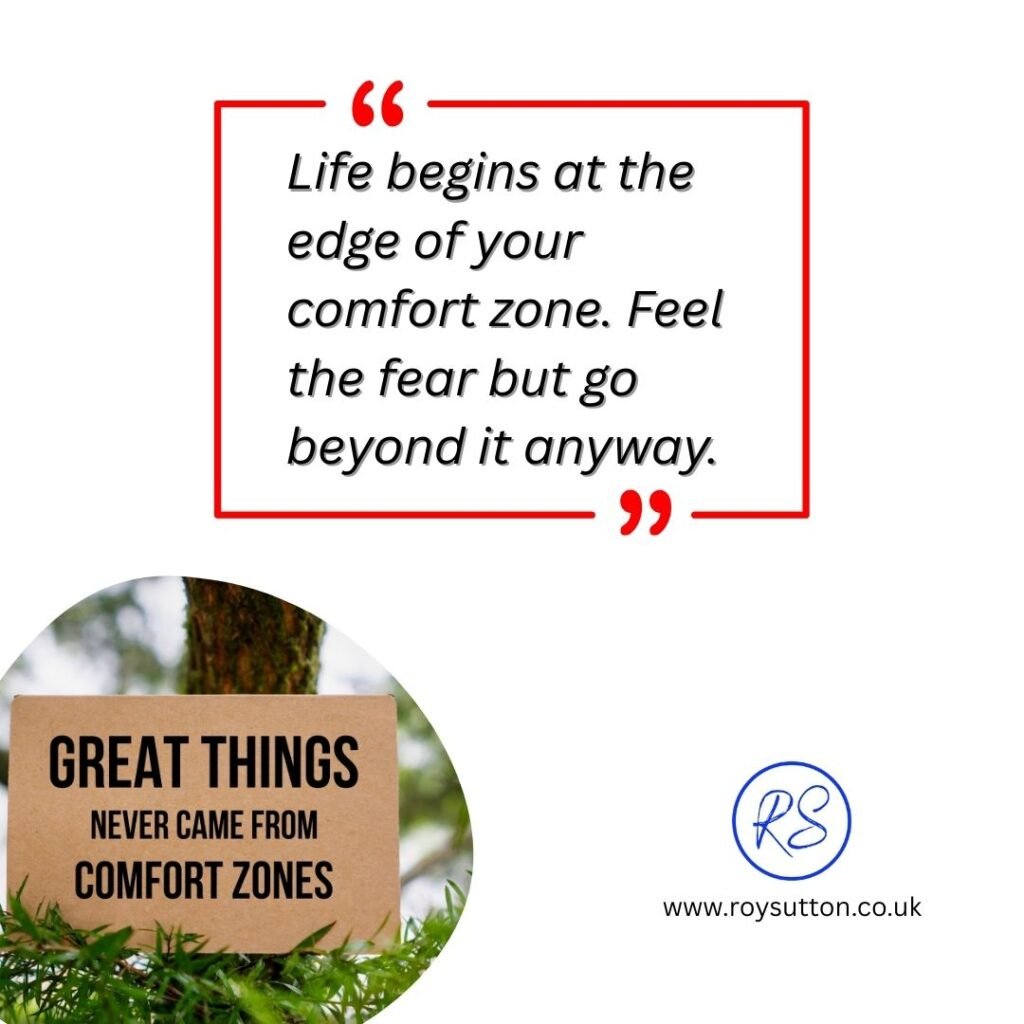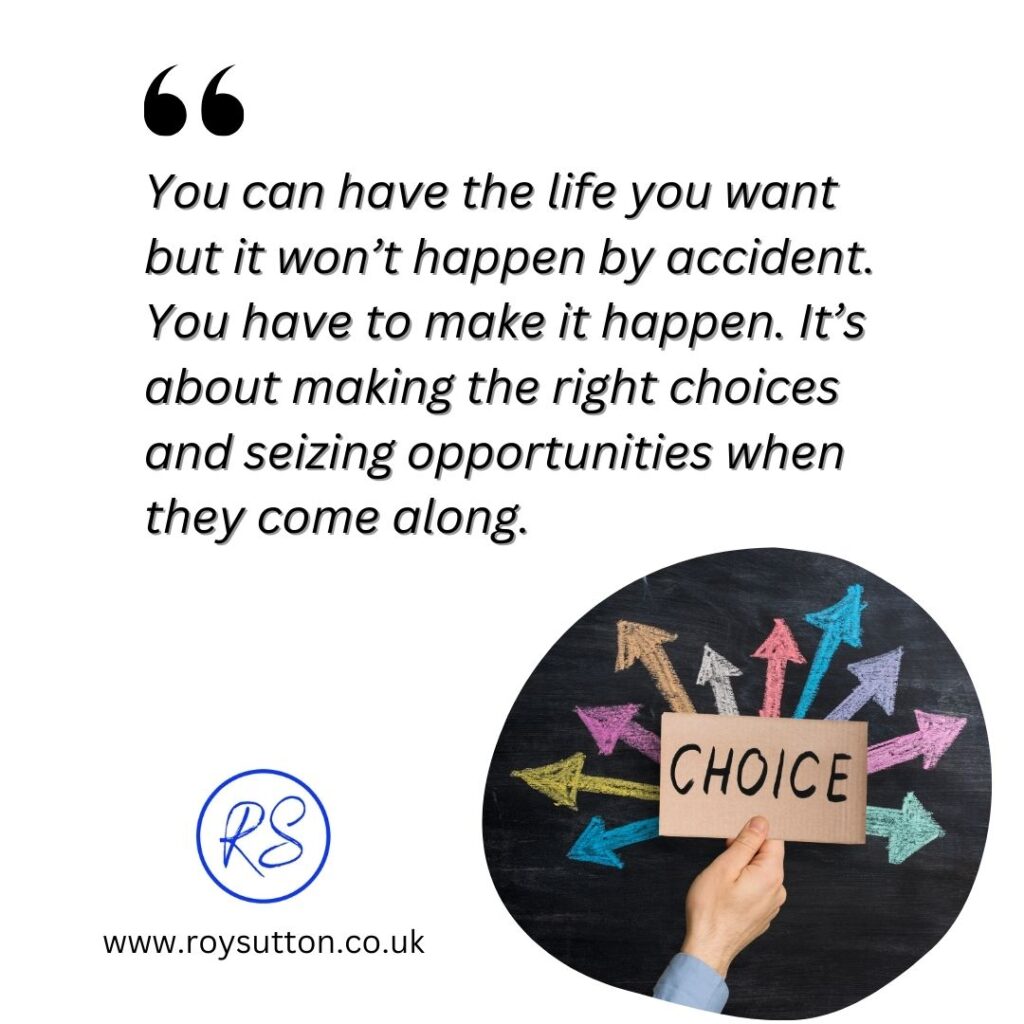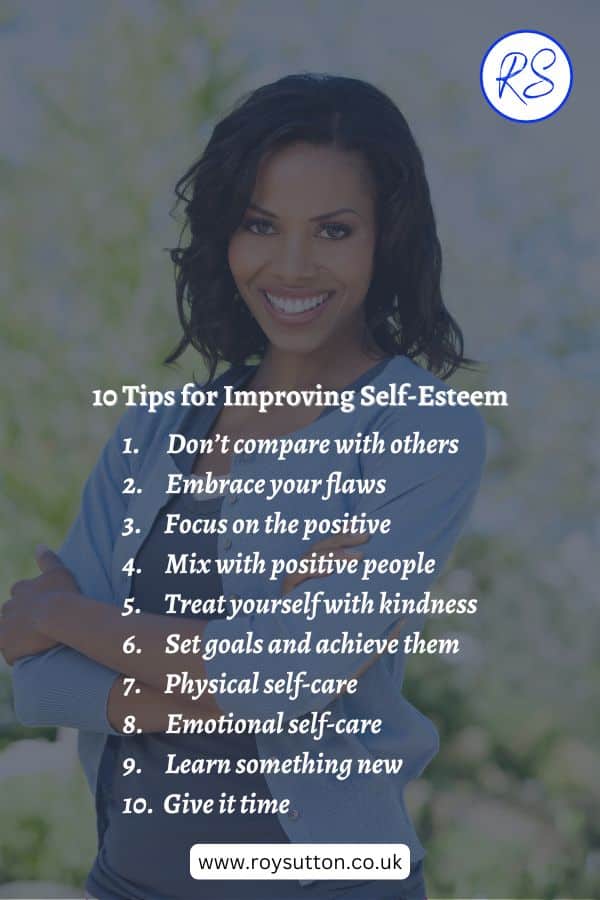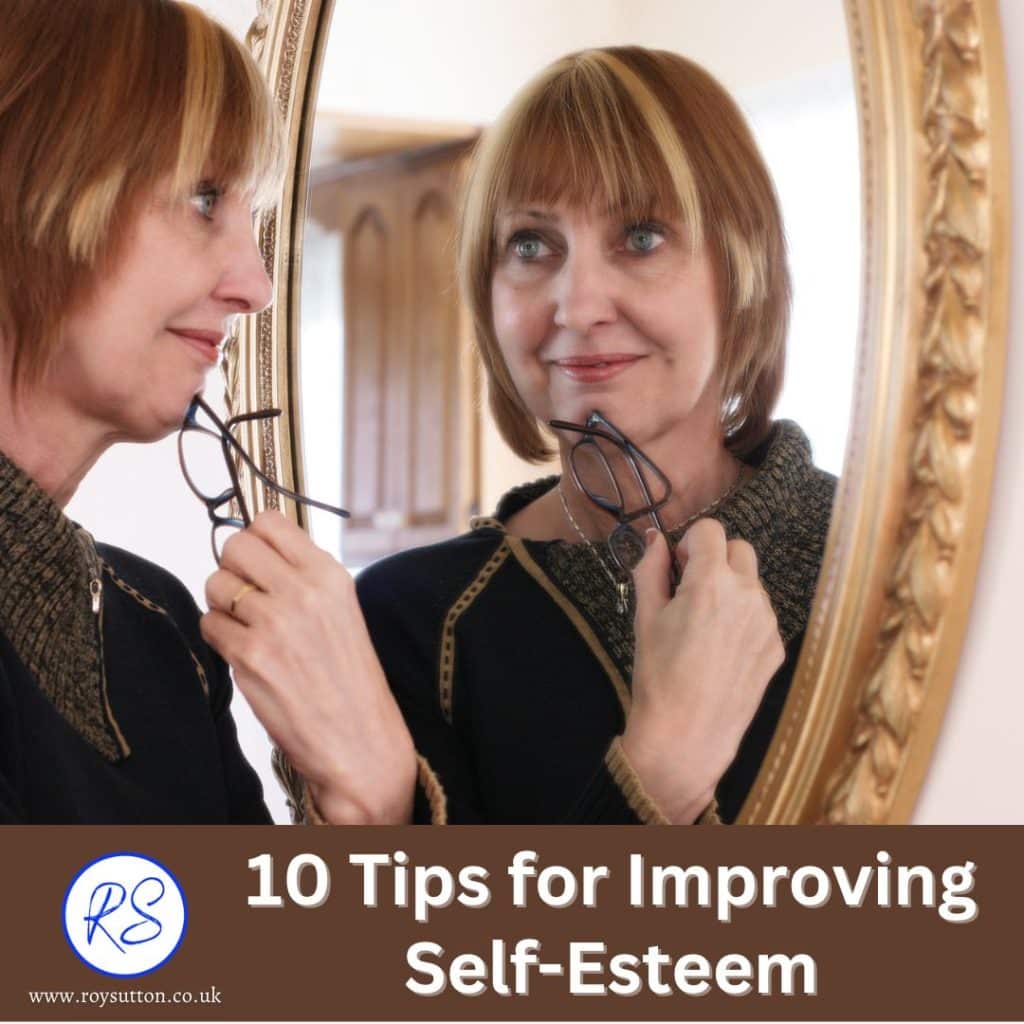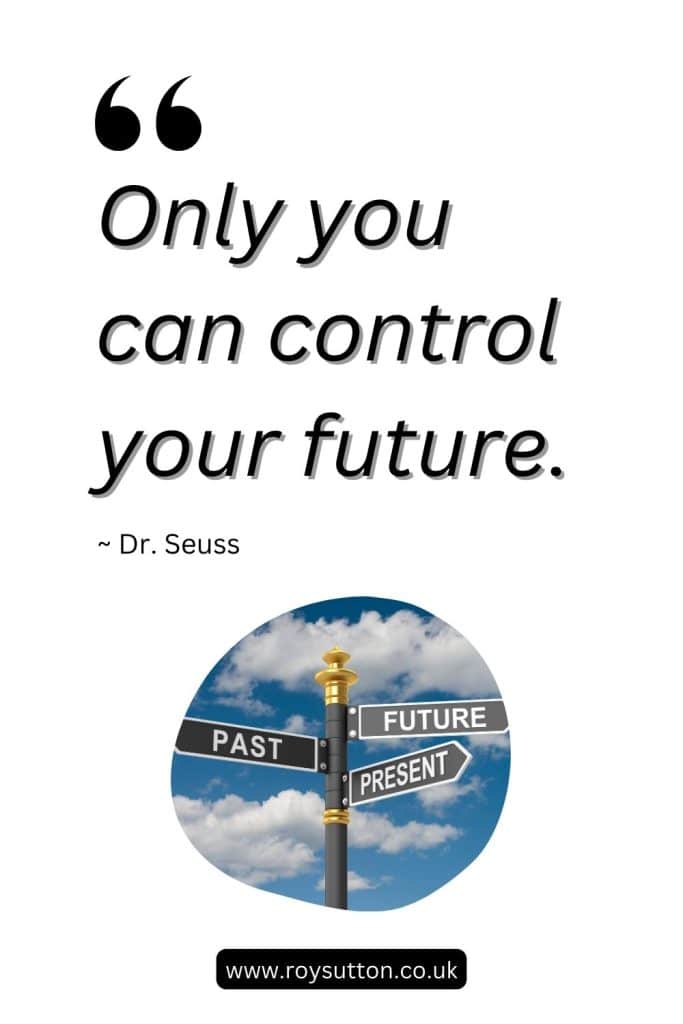
If your aim is growth and achievement, then playing it safe is unlikely to be the right strategy for you. You must face your fears, dear reader. You must have the courage to step out of your comfort zone because we grow by taking on challenges throughout our lives.
Overcoming challenges is always at the heart of any achievement worthy of note.
A life worth living is a life where you feel fully engaged.
To feel energized and engaged with life, you must stretch yourself to the limits of your potential.
Needless to say, you can only find the limits of your potential if you step out of your comfort zone.
Step out of your comfort zone
Sadly, many people, if not most, never dare to step outside their comfort zone. They prefer to live where they feel safe.
Staying within your comfort zone is fine, of course, if that’s what you want, but you can’t call it living, can you? It’s existing, perhaps, but not living, I think.
You cannot grow from within the safety of your comfort zone. That’s simply a fact.
You’ll find that life begins to have a real buzz when you take the first step beyond your comfort zone. That’s what you might call living on the edge.
Inevitably, it’s scary, of course, but you do begin to feel energized. It’s where you’ll feel a real sense of exhilaration.
Yes, of course, it involves risk; that’s true. However, risk and reward go hand in hand. No risk; no reward.
Stepping outside your comfort zone doesn’t guarantee success, and of course, you might still fail. You’ll certainly experience some failures along the way, because everyone does.
Experiencing failures is an inevitable part of chasing success because success lies on the far side of failure. However, to get to second base and beyond, you must be prepared to take your foot off first base.
Successful people don’t always make the right decisions. However, they’re willing to challenge themselves, and they’re willing to persist long after everyone else has given up. They may fail, but they learn from failure, and they use what they’ve learned to work towards achieving their goals.

You have enormous potential:
Dear reader, let me tell you something. You have enormous potential, and you can achieve anything if you want it badly enough and you’re prepared to work hard for it.
Certainly, you’re capable of achieving great things.
However, you must set challenging goals, and you must be prepared to step out of your comfort zone. If you can face that discomfort and keep on going, then you really can become the person you’re destined to be.
It’s easier to stay within your comfort zone, of course, and you’ll feel safe that way, but nothing beats the feeling of winning and achieving those challenging goals you’ve set yourself. A life of safety first can be dull.
If every obstacle must first be overcome before you start, then you’ll never achieve anything.
Playing it safe is a bigger risk than stepping beyond your comfort zone.
By playing it safe, you take the risk that you’ll never experience the satisfaction of real achievement. And it’s always better to try and fail than it is to spend your life wondering what might have been.
Stepping beyond your comfort zone means embracing uncertainty, of course. However, the quality of your life will depend on the amount of uncertainty you can bear.
So go on, live a little.
Step out of your comfort zone right now and take that tiger for a ride. You’ll be glad you did.
Building the courage to step out of your comfort zone:
To reinforce the message in today’s theme, you might find the embedded video from Brian Tracy inspiring.
In it, Brian offers some wise words on building the courage to break out of your comfort zone. It’s well worth your time, and I recommend it to you.
Please share this post with your friends:
Did you find this article and the video interesting and useful, dear reader?
If so, then please share it on social media with your friends. When you share, everyone wins.
So go on, please share it now. If you can do that for me, I’ll be forever grateful, and you’ll be helping a keen blogger reach a wider audience.
Thank you for your support.
Other articles you might also find interesting:
- Valuing people must take precedence in the modern age
- Top wealth creation strategies for financial success
- Why an investment in knowledge pays dividends
- 13 tips for improving your personal happiness
- Steve Jobs’ Top 10 Rules For Success to inspire you
- 25 inspirational stories of people going from rags to riches
- The 4 steps to financial freedom
- 7 tips for becoming your best self
- 11 tips for improving quality of life now
- What is life’s most precious resource?
- Daily Habits of Successful People
- How to find the right job for you: Simply Explained
- How to spot a liar and be your own lie detector
- Self-promotion and why it matters if you want success
- 21 things you need to know in life to avoid its pitfalls
- 9 tips for getting the most from your work
© Mann Island Media Limited 2025. All rights reserved.
STEP OUT OF YOUR COMFORT ZONE

